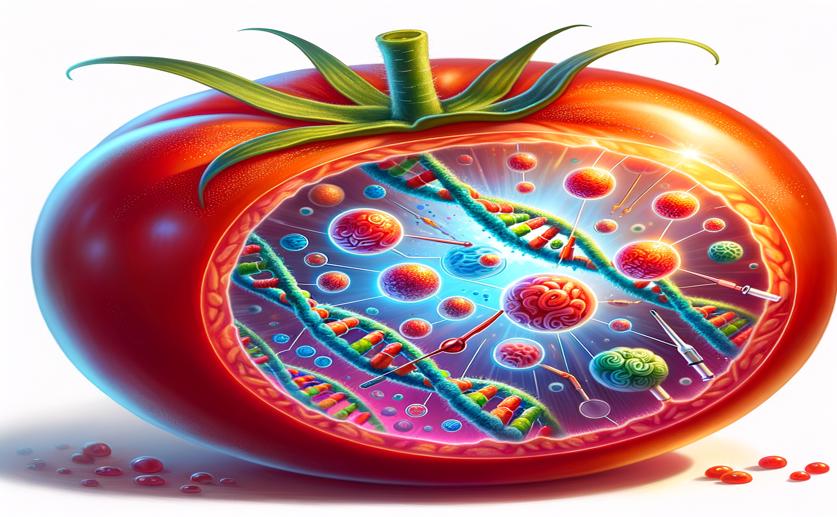
How Bacterial Enzymes Change Tomato DNA on a Large Scale
Jenn Hoskins
20th May, 2024

Image Source: Natural Science News, 2024
Key Findings
- The study by the Agricultural Research Organization, Volcani Center, explored altering the tomato genome's methylation using a bacterial enzyme
- Researchers found that this enzyme caused specific hypermethylation in gene-rich regions, affecting some genes' expression
- These induced methylation changes were stable and inheritable, suggesting potential for long-term epigenetic modifications in tomatoes
References
Main Study
1) Genome wide inherited modifications of the tomato epigenome by trans-activated bacterial CG methyltransferase.
Published 20th May, 2024
Journal: Cellular and molecular life sciences : CMLS
Issue: Vol 81, Issue 1, May 2024
Related Studies
2) DNA methylation dynamics in response to abiotic and pathogen stress in plants.
3) The epiallelic potential of transposable elements and its evolutionary significance in plants.



 18th May, 2024 | Jenn Hoskins
18th May, 2024 | Jenn Hoskins